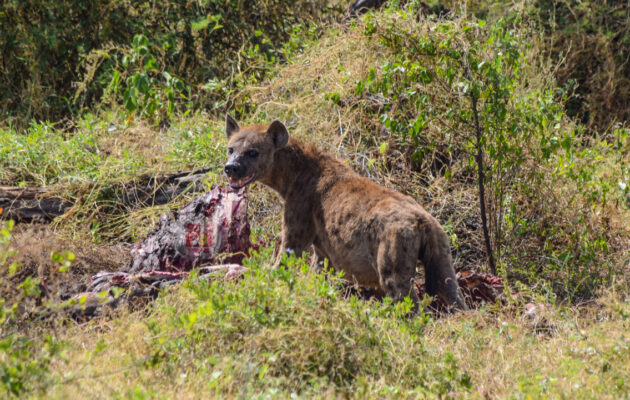The Kenya Wildlife Service (KWS) has KWS set traps to capture Hyenas that have been terrorizing the residents of Lichota- Suna West Sub County.
The operation which was coordinated by KWS officials and the residents hopes to trap and capture hyenas that have been migrating from the Lichota forest and preying on their domestic animals.
According to Elphas Wasike, a resident of the Lichota area, the Hyenas have created fear among the community and posed a danger to school-going children.
Wasike also disclosed that hyenas have been attracted to a nearby cemetery where bodies have been shallowly buried. He called upon the county government to fence off the cemetery and follow strict burial guidelines of ‘six feet body burial’ to deter the carnivore which has a strong sense of smell.
Lichota Assistant Chief Justus Ochieng elaborated that the villagers were thankful for the assistance of the Kenya Wildlife Service and the county government in helping to trap the hyenas.
Migori County Executive Committee Member for Health Julius Nyerere however, said that the county has allocated a budget to fence the cemetery to deter Hyenas from Lichota forest.
Nyerere disclosed that some of the preyed bodies were illegally buried by people who do not have burial permits from public health, saying that the county will launch an investigation into the matter. KNA






